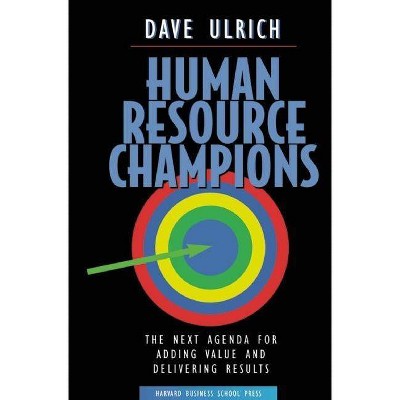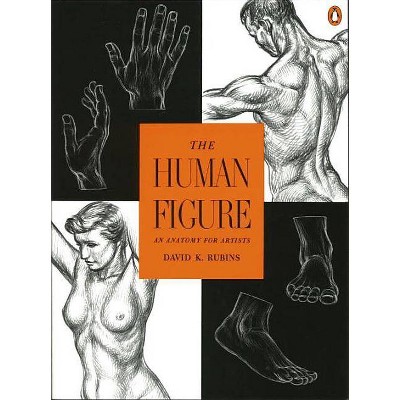The Human Element - by Loran Nordgren & David Schonthal (Hardcover)

Similar Products
Products of same category from the store
AllProduct info
<p/><br></br><p><b> About the Book </b></p></br></br>"This book offers the readers two essential insights. First, readers will discover the four Frictions that operate against their efforts to influence and innovate. They will come to understand the unexpected reasons why the ideas and initiatives they are most passionate about get rejected. Second, readers will learn how to both identify and disarm these forces of resistance. Even better, the reader will discover how to turn the forces of Friction into winds of change. The insights this book offers are important because, as the authors will show, people have the wrong influence intuitions. The conventional approach to influence and catalyzing change is to add or highlight value -- to explain the benefits or enhance the appeal. They call this the "sizzle syndrome". The conventional approach is, of course, necessary. But it's woefully insufficient. Insufficient because it misses not just half the story, but its most important part. Whenever we want to create change, we must first appreciate and respect the forces operating against us. While we might not see them, they are there, quietly undermining and inhibiting our efforts. When we wrongly attempt to overcome these forces by tacking on sizzle to heighten the appeal we inadvertently (and counterintuitively) intensify the very friction we are trying to overcome. Instead, what is needed is to disarm the forces operating against change. To create change, people need to understand the forces working against them. And here's the exciting thing: once you see the Friction points, you can redesign those very same forces to drive change"--<p/><br></br><p><b> Book Synopsis </b></p></br></br><p><b><i>Wall Street Journal</i> bestseller<br /><br />Watch your most innovative ideas take flight by overcoming the forces that resist change</b></p> <p><i>The Human Element</i> is for anyone who wants to introduce a new idea or innovation into the world. Most marketers, innovators, executives, activists, or anyone else in the business of creating change, operate on a deep assumption. It is the belief that the best (and perhaps only) way to convince people to embrace a new idea is to heighten the appeal of the idea itself. We instinctively believe that if we add enough value, people will eventually say yes. This reflex leads us down a path of adding features and benefits to our ideas or increasing the sizzle of our messaging - all in the hope of getting others on board. We call this instinct the Fuel-based mindset. The Fuel-based mindset explains so much of what we do, from adding countless trivial features to software, to bolting a sixth blade onto a shaving razor.</p> <p>By focusing on Fuel, innovators neglect the other half of the equation - the psychological Frictions that oppose change. Frictions create drag on innovation. And though they are rarely considered, overcoming these Frictions is essential for bringing new ideas into the world. <i>The Human Element</i> highlights the four Frictions that operate against innovation. Readers will discover: </p> <ul> <li>Why their best ideas and initiatives often get rejected - despite their undeniable value</li> <li>How to disarm the forces of resistance that act against change</li> <li>How to transform the very Frictions that hold us back into catalysts for change</li> </ul> <p>Perfect for business leaders, product managers, educators, and anyone else who seeks to bring new and exciting ideas to life, <i>The Human Element</i> is an indispensable resource to help people overcome the powerful forces of human nature that instinctively resist change.</p><p/><br></br><p><b> From the Back Cover </b></p></br></br><p><b>Praise for THE HUMAN ELEMENT</b></p> <p>An engrossing read on what it takes to open other people's minds. A leading psychologist and a crackerjack entrepreneur team up to demystify the science and practice of convincing people to let go of the status quo. If you've ever been frustrated by people rejecting an innovative idea or refusing a constructive change, this book might just be what you need.<br /><b>--Adam Grant, </b> #1 <i>New York Times</i> bestselling author of <i>Think Again</i> and host of the TED podcast WorkLife</p> <p>There's always something standing between ourselves and innovation: an overwhelming and very human resistance to change. The insights Loran Nordgren and David Schonthal surface are important reminders of the care and attention designers need to bring a new idea to life and to build our shared future.<br /><b>--Sandy Speicher, </b> CEO of IDEO</p> <p>Why is it that customers looking at new products or services that would dramatically change their lives or business for the better find it so hard to embrace and adopt them? <i>The Human Element</i> cracks the code. It describes the four forces that act against innovation and provides entrepreneurs the insights and tools on how to overcome them. This book is essential reading for any entrepreneur or innovator looking to accelerate adoption of disruptive innovation.<br /><b>--Steve Blank, </b> Eight-time entrepreneur-turned-educator and originator of the Lean Startup movement</p> <p>What invisible forces slow or stall even our best innovation efforts? Schonthal and Nordgren identify four 'Frictions' that get in the way, and then tell us how to overcome them. <i>The Human Element</i> is full of insights for designers, innovators, and executives alike.<br /><b>--Tom Kelley, </b> Three-time bestselling author of <i>Ten Faces of Innovation, The Art of Innovation, </i> and <i>Creative Confidenc</i></p> <p><i>The Human Element</i> pulls back the curtain on the psychological forces that stop people from embracing new ideas and adopting new products. Whether you're a creator looking to execute or an executive looking to create, this book is a timely read.<br /><b>--Daniel H. Pink, </b> Author of <i>When, Drive, </i> and <i>To Sell Is Human</i></p><p/><br></br><p><b> About the Author </b></p></br></br><p><b>DAVID SCHONTHAL</b> is an award-winning Professor of Innovation & Entrepreneurship at Northwestern University's Kellogg School of Management. Outside of academia, David's work in the fields of design, innovation consulting and venture capital have led to the creation and launch of over 200 new products and services around the world.</p> <p><b>LORAN NORDGREN, PhD, </b> is a Kellogg Professor of Management. His research and teaching explores the psychological forces that propel and prevent the adoption of new ideas. Loran has received numerous awards for research and teaching, and has worked with companies throughout the world on a wide-range of behavior change problems, a process he calls behavioral design.</p>
Price History
Cheapest price in the interval: 24.49 on October 27, 2021
Most expensive price in the interval: 24.49 on December 20, 2021
Price Archive shows prices from various stores, lets you see history and find the cheapest. There is no actual sale on the website. For all support, inquiry and suggestion messages communication@pricearchive.us




















